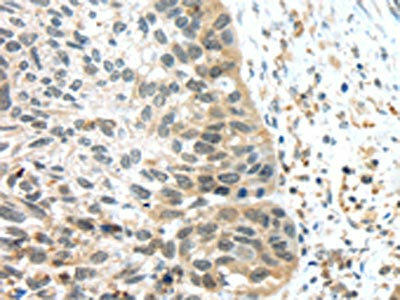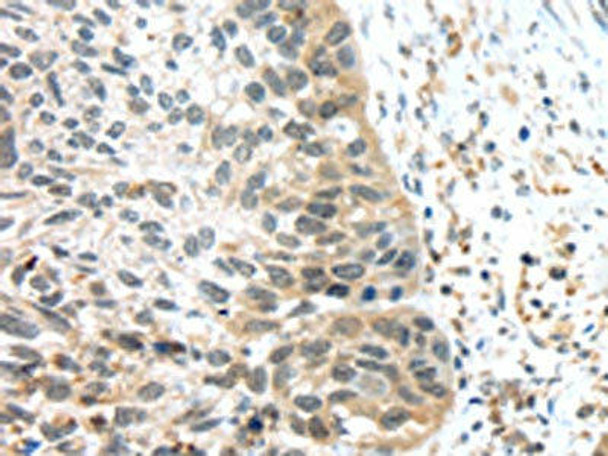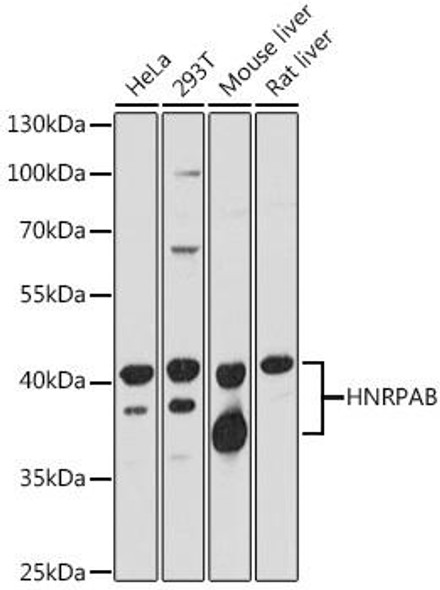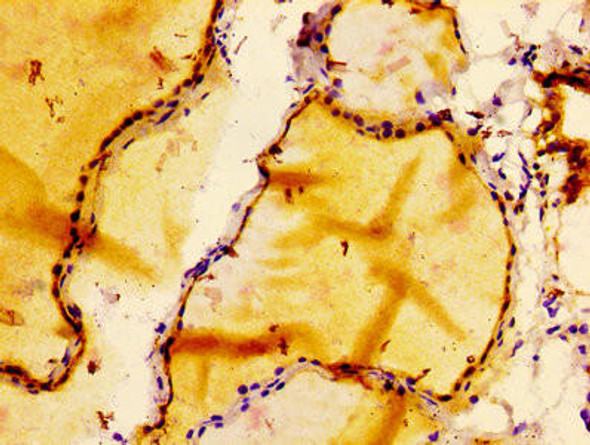TSPY1/TSPY3 Antibody (PACO20781)
- SKU:
- PACO20781
- Product Type:
- Antibody
- Reactivity:
- Human
- Host Species:
- Rabbit
- Isotype:
- IgG
- Applications:
- ELISA
- IHC
- Antibody Type:
- Polyclonal Antibody
- Conjugation:
- Unconjugated
Description
TSPY1/TSPY3 Antibody (PACO20781)
Based on the information provided in the URL, we have the TSPY1/TSPY3 Antibody (PAC020781). This polyclonal antibody is designed for research involving the TSPY1 and TSPY3 proteins, which are members of the TSPY gene family and are implicated in various cellular processes.The TSPY1/TSPY3 Antibody is raised in rabbits and is highly reactive with human samples. It is validated for use in applications such as Western blotting, enabling users to detect and analyze TSPY1 and TSPY3 proteins in different cell types. This makes the antibody ideal for studies in areas such as reproductive biology, cancer research, and developmental biology.
The TSPY1/TSPY3 proteins are known to play important roles in cell proliferation, differentiation, and tumorigenesis. Understanding the function of these proteins is crucial for unraveling their potential involvement in diseases like cancer and infertility. By targeting and studying TSPY1 and TSPY3 with this antibody, researchers can gain valuable insights into the molecular mechanisms underlying these conditions and potentially identify new therapeutic targets.
| Antibody Name: | TSPY1/TSPY3 Antibody (PACO20781) |
| Antibody SKU: | PACO20781 |
| Size: | 50ul |
| Host Species: | Rabbit |
| Tested Applications: | ELISA, IHC |
| Recommended Dilutions: | ELISA:1:2000-1:10000, IHC:1:30-1:150 |
| Species Reactivity: | Human |
| Immunogen: | Synthetic peptide of human TSPY1/TSPY3 |
| Form: | Liquid |
| Storage Buffer: | -20°C, pH7.4 PBS, 0.05% NaN3, 40% Glycerol |
| Purification Method: | Antigen affinity purification |
| Clonality: | Polyclonal |
| Isotype: | IgG |
| Conjugate: | Non-conjugated |
 | The image on the left is immunohistochemistry of paraffin-embedded Human esophagus cancer tissue using PACO20781(TSPY1/TSPY3 Antibody) at dilution 1/45, on the right is treated with synthetic peptide. (Original magnification: x200). |
| Background: | The protein encoded by this gene is found only in testicular tissue and may be involved in spermatogenesis. Approximately 35 copies of this gene are present in humans, but only a single, nonfunctional orthologous gene is found in mouse. Two transcript variants encoding different isoforms have been found for this gene. |
| Synonyms: | testis specific protein, Y-linked 1/testis specific protein, Y-linked 3 |
| UniProt Protein Function: | TSPY1: May be involved in sperm differentiation and proliferation. TSPY is located in the gonadoblastoma critical region and is preferentially expressed in tumor germ cells of gonadoblastoma specimens. Expression also correlates with testicular seminoma and tumorigenesis of the prostate gland. Belongs to the nucleosome assembly protein (NAP) family. 2 isoforms of the human protein are produced by alternative splicing. |
| UniProt Protein Details: | Protein type:Cancer Testis Antigen (CTA) Chromosomal Location of Human Ortholog: Yp11.2 Molecular Function:protein binding Biological Process: cell proliferation; sex differentiation Disease: Gonadoblastoma |
| UniProt Code: | Q01534 |
| NCBI GenInfo Identifier: | 332278243 |
| NCBI Gene ID: | 728137 |
| NCBI Accession: | Q01534.4 |
| UniProt Secondary Accession: | Q01534,O00216, P09002, Q0VAD3, Q9UNN7, A6NJD2, |
| UniProt Related Accession: | P0CV98 |
| Molecular Weight: | 33,169 Da |
| NCBI Full Name: | Testis-specific Y-encoded protein 1 |
| NCBI Synonym Full Names: | testis specific protein, Y-linked 3 |
| NCBI Official Symbol: | TSPY3 |
| NCBI Official Synonym Symbols: | CT78 |
| NCBI Protein Information: | testis-specific Y-encoded protein 3 |
| UniProt Protein Name: | Testis-specific Y-encoded protein 1 |
| UniProt Synonym Protein Names: | Cancer/testis antigen 78; CT78 |
| Protein Family: | Testis-specific Y-encoded protein |
| UniProt Gene Name: | TSPY1 |
| UniProt Entry Name: | TSPY1_HUMAN |








